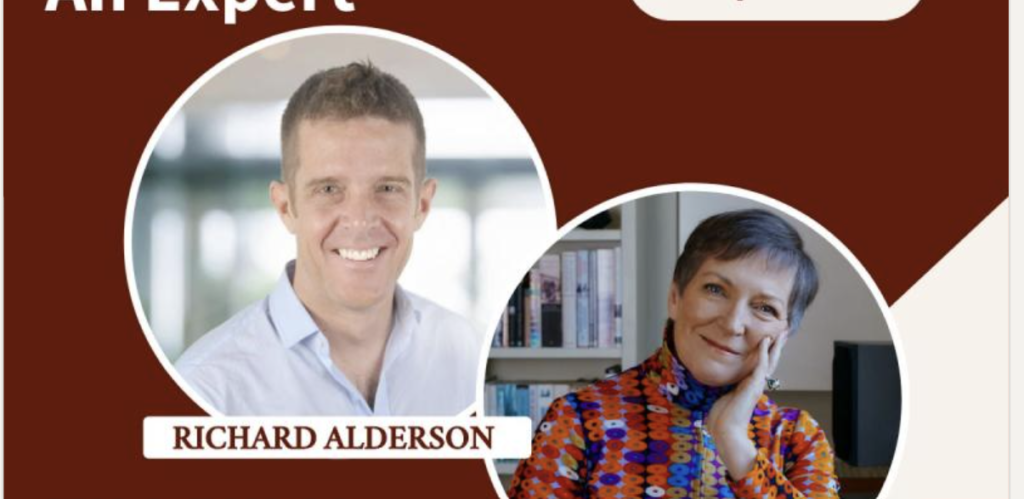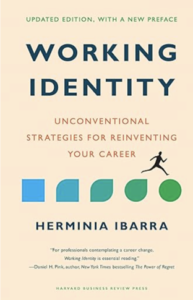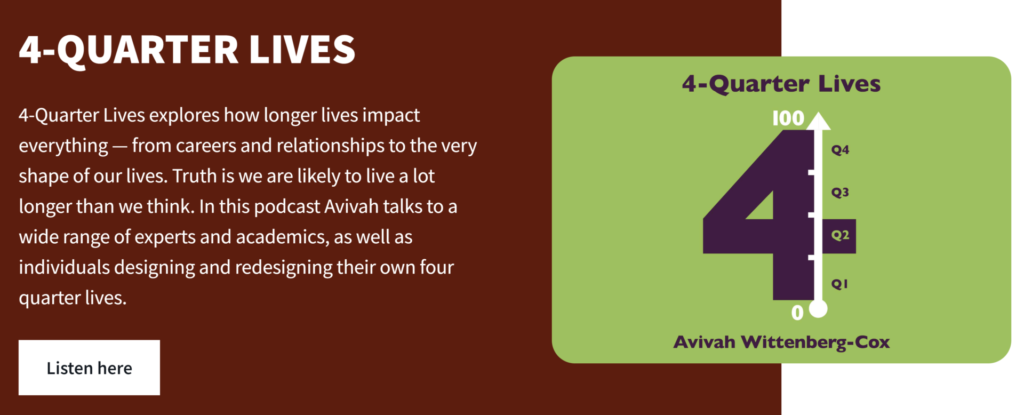The five steps for a successful partner transition
13 February 2024 By Victoria Tomlinson

I have been excited all weekend. Four years ago we came up with a process to help law and accountancy partners to transition to…. Unretirement – partner transition. Or something new. Whatever.
We created this process from scratch, based on working with hundreds of partners, directors and people in a huge range of jobs and called it The 7-Step Process to Fill a Blank Sheet. We absolutely know this is the right way to use your skills in a new way, when you have no idea what you want to do next. But you know how, when you create something yourself – even though it’s based on your experience, because of what you hear people say and you retell their real, lived experience for the benefit of others – you still have a niggle. And then you hear not one, but two, influencers confirming what you have been saying for years! Yes, it’s exciting!
This weekend I discovered others agree with us and yes, we may use different words but two esteemed influencers in this space are recommending a similar approach. I have to give a huge thank you to Avivah Wittenberg-Cox because both Richard Alderson, founder of Career Shifters and Herminia Ibarra, author of Working Identity, were guests on her podcast.

They are saying what we are. The partner transition process for most is long, messy, squiggly and will have dead ends. It’s better if there are things that don’t work out – it will help you work out what you do want. It can take years – two if you are lucky, but much more likely to be three to five years to get to …. You couldn’t exactly define it, but where you feel happy and fulfilled with your life.
So let’s look at what the issues are around this; what process do we recommend and why and what do Richard and Herminia say that backs this up? I have to say Richard’s analysis and articulation is fantastic and I am going to recommend that everyone going on our workshops should listen to these two podcasts.
1. What are the issues around partner transition?
Partners in a professional firm generally work 24/7 – often literally, on some days; they are dedicated to their clients and there is little space for anything beyond work. They complete a questionnaire before our workshops and it is sad to see so many saying that for this next phase of their life they want to reconnect/spend time with family. The sad bit is of course that they feel they have neglected spouse, children, parents and friends for most of their working lives. Herminia Ibarra says that most people who are career shifting – as she and Richard refer to it – know what they don’t want. A smaller group know what they want but sadly realise the market does not want them for whatever reason.
And you can work out, that means for most people they have no idea what they want, what it could look like or how to achieve it.
When I first got involved with professional firms, the few firms that had any help for partner transitions were offering coaching. A few had workshops and/or help to get non-executive director roles.
The challenges about these are
- Boards now want more diversity – of every sort. Not just gender, race and age but also skills such as cyber and data. Few partners meet the board spec or have relevant non-executive experience
- Coaching is fine if you have some kind of idea as to what you want to do. It is extremely hard to coach someone who knows no-one like them, who is doing something that appeals to them and they have few ideas of their own
The Oxford Handbook of Evidence-Based Coaching Psychology, 2012 looks at the concept of coaching as ‘a process that aims to uncover and develop the coachee’s own insights and ideas. Effective coaching involves facilitating the individual’s self-discovery and encouraging them to tap into their own creativity and resourcefulness.’ The paper highlights the importance of empowering individuals to find their solutions rather than imposing solutions from the coach.
The theory of this is fine, but there are stages in life when drawing out someone’s ‘own insights and ideas’ is really difficult and partner transition stage is one of those. Our colleagues Trevor Hatton and Jo Cochrane are certified career counsellor and master coach respectively. Both specialise in partner transitions.
They both say yes, they can help people with absolutely no idea what they want to do, but also say it is so much easier if a partner has been on a workshop to give them ideas. When they have already listened to dozens of people sharing their journey and what they are doing, it helps to knock out a great many options and may give a clue for their own starting point. It’s easier to discuss what is or isn’t sparking them.
2. Just do it to get started
What is the Next-Up process? We call it 20 Conversations (but if you can do 30, 40, 50, 60 or more conversations even more things will happen. Someone today said he had 100 and that is great). I say to think of a topic you are interested in – your local community, a sport, theatre, your old university, your profession. Jot down a dozen – or 20 – people to go and have conversations with. If they are connected to your topic, great, but don’t worry about this. They will probably know people to introduce you to. Once you have this initial list, ask if you could have a coffee with them.

Now I am helping a few partners in transition at the moment and one that I set off on this path said, ‘Why would anyone want to meet me?’ I was completely taken aback. I said, you are one of the senior people in this firm, trust me they will. And they did. He later said he couldn’t believe how generous people are with time and then introducing him to more people. He concluded that it’s what he calls ‘social impact’ space which isn’t competitive like the law. Maybe. I think most people are just generous and want to help.
Once you have these coffees, ask them to tell you about what they are doing and if they have any current challenges. These challenges could be as wide-ranging as recruiting and can’t get the skills they need; putting in a Lottery bid for funding; a problem negotiating a building lease; developing new services for the community; or a new member of the leadership team who isn’t settling in well. With each challenge, have a think – does it interest you? There is no point at this stage of life in getting involved with things that you have absolutely no interest in. But if you are very interested – or even a bit, then offer to help.
(We use the above table in our workshop workbooks – it may be useful for you).
Could you mentor the new team member, help to find someone with legal skills to give a view on the building lease or go and talk to people in the community about the services they need.
Just start doing things. Don’t worry initially about where they are leading. Give a hand and get involved. If you do this a few times, you will gradually start working out which things are giving you a buzz and which are definitely not.
As you meet and help people, they will introduce you to others and so on. Only by doing things will you work out what you are about.
Herminia told Avivah, ‘You just have to act your way out’. In her book she says that ‘Your Working Identity is not a hidden treasure just waiting to be discovered.’ She thinks it’s a myth that you need to find your true self first and then everything will become clear about what you want to do next. She says you just have to do things and you will find some things start fitting with what you want, a lot won’t, you have to prototype some things. But get going, there is no point in spending ages navel gazing. I could not agree more.
And then to Richard. I am now going to focus on what he says because I really like the way he explains this.
3. The five stages of career shifting – or partner transition
Richard focuses on helping people change careers in mid-life, generally aged 30, 40 or 50. He himself was a management consultant and at the age of 29 was utterly miserable. He started researching all sorts and found he was drawn to the social impact world and joined UnLtd. A great organisation we have worked with. Learning from his own journey and helping others, he says there are five stages to a career shift. Even though he is talking about people changing direction half-way through their working life, it exactly mirrors partners transitioning from full time professional life to … something completely new. Very few partners want to ‘retire’ fully.
He describes the five stages as
- Questionner – starting to think about, what else is out there? What would I like out of life? Getting a Sunday evening feeling of gloom about the week ahead. This may be slightly different from someone facing ‘retirement’ because they tend to have a specific deadline of leaving, rather than an open diary for them to organise and fill
- Browser – you are starting to look at job sites – in the case of transition partners they nearly always search non-executive director job sites because they can’t think of what else they could do. You find the sites aren’t particularly helpful but you start getting answers to some questions
- Explorer – you start thinking of what is possible. This is when people in full time jobs tend to go on Richard’s courses at Career Shifters. In the case of partners, they tend to go on our workshop and concertina the Questionner, Browser and Explorer stage into one. In other words they have given diddly squat time to the whole subject!
- Pathfinder – this is starting to narrow down ideas and working out a path to what they want to do. In the case of partners this is when the coach can really help. Most partners take a long time working out ideas, but this is when I think the 20 Conversations works for them. It means they are meeting new people, researching, getting out of their comfort zone
- Shifter – this is when career shifters make the move, recognise the skills they have, learn rapidly and embed. Some partners will be trying new things at this stage, some will still be relatively lost
I loved that Richard said there is a sixth stage for many. Once they are settled and happy in their new direction, many become a mentor and help others to do what they have done.
4. Career shifting/partner transition takes a long, long time
We say to partners to be kind to themselves. This is rarely going to be a quick process. When running workshops we say it can take two or three years to get to the start of the shift and up to five years to feel they have reached where they wanted to be. Though almost no-one has any idea what that is
Reassuringly Richard said this process usually takes years. Avivah laughed and shared that when people go to her for coaching, they often say something like, ‘Well it’s spring now. I’d like to work on this for the next two months and be ready to move by the summer’ or similar. Both agreed men in particular are keen for a quick timetable.
Herminia has just updated and republished her Working Identity book and for the intro, her editor asked her to play down how long career shifting takes! No, she said. It takes a long time. We must not dress this up.
I have come to realise that for professionals in particular, partner transition is especially difficult because they have had such certainty in career planning until then. For most, they start thinking about becoming a lawyer or accountant when doing A’ Levels, go to university, do a six month law conversion (for lawyers), get articles in a firm, work their way up and become partner. It’s not to say any of this has been easy but there is a known path to follow.
One partner who had recently retired, said to me, ‘I am applying for non-executive director roles because I think my peers expect me to but there are also jobs advertised and I can apply. Everything else is a big black hole.’
None of this makes it any easier for transition partners. But hopefully it helps in managing expectations. There is no magic wand for anyone.
What we all agree on is that partner transition or career shifting …
- Takes a long time
- Is better without too much introspection
- Needs to be about action,, not thinking at the start
- Needs you to meet lots and lots and lots of people
We all also agree there is no such thing as failure. Some things WON’T work and that is good. It’s part of the process. Some things will be dead ends. That’s fine
This is messy, time consuming and unpredictable. But at the end, you will feel more fulfilled and happier than you have possibly ever been before.
And if you want to listen to these podcasts, head to Avivah’s podcast, 4-Quarter Lives

This is the link to Richard Alderson’s interview and Herminia Ibarra’s interview
Good luck to everyone, whether you are a partner coming up to retirement and facing that transition or if you are rethinking your life and future career. It’s daunting and the most fun ever!


